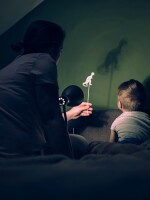This page is updated regularly.
Since the first U.S. case of the coronavirus was identified in Washington state on Jan. 21, health officials have identified more than 500,000 cases across the United States and more than 20,000 deaths. By March 17, the virus had expanded its presence from several isolated clusters in Washington, New York and California to all 50 states and the District of Columbia.
Click here to see a global map of confirmed cases and deaths.
Loading...
Social distancing is widely seen as the best available means to " flatten the curve of the pandemic," a phrase that epidemiologists use to describe slowing down the spread of infection. This approach can save lives by keeping local health care systems from being overwhelmed.
In response to mounting cases, states are closing schools, banning large gatherings and urging people to stay home when possible. On March 16, President Trump announced new guidelines urging Americans to avoid discretionary travel, going out to eat and gathering in groups of more than 10 people.
Loading...
To avoid spreading the disease, the Centers for Disease Control and Prevention also recommends basic precautions such as hand-washing and cleaning frequently touched surfaces every day.
Globally, the respiratory disease has spread to dozens of countries and has killed several thousand people since it was first reported in Wuhan, China, in December.
Warnings issued by the CDC recommend avoiding nonessential travel to dozens of countries with outbreaks of COVID-19, including China, Iran, South Korea and many European nations. The U.S. government has banned travel from Europe, although the ban makes exceptions, including for U.S. citizens and legal permanent residents.
This story was originally published on March 16, 2020.
Copyright 2020 NPR. To see more, visit https://www.npr.org.


